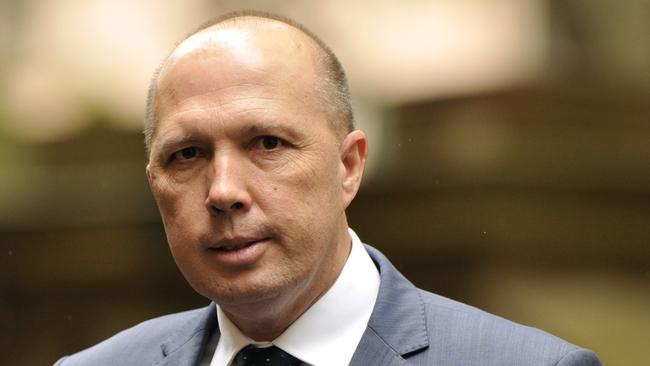Security red flag for 500 refugees
More than 500 refugees bound here in the past year have been refused entry because they were on a security watchlist.

More than 500 Iraqi and Syrian refugees bound for Australia in the past year under the government’s humanitarian program have been refused entry after an alert from the Five Eyes intelligence network that their names were on an international security watchlist.
At least 30 of those refugees had also turned up on ASIO’s national security terrorism watchlist, with a further but undisclosed number red-flagged by intelligence agencies as having adverse national security profiles.
The security net included a number of refugee applications made under the one-off special humanitarian program announced in 2015 to resettle 12,000 displaced and persecuted Syrians trying to flee the civil war.
A senior intelligence source said the majority of those identified as security risks had been found among priority family groups seeking refuge in Australia rather than individual single males of fighting age, a development that they described as “unusual and disturbing”.
They revealed that about 17,000 biometric scans had been conducted on Iraqi and Syrian refugees wanting to enter Australia since October 2015.
The bulk of the 500 deemed a risk were discovered on a general security watchlist of a Five Eyes member country that included “criminal and other” activities.
The Five Eyes intelligence network is a security arrangement between Australia, the US, Britain, Canada and New Zealand.
While the number of those who triggered national security and terrorism concerns was less than 10 per cent of the 500 rejected on general security grounds, the source said the national security risk posed by even a small number of those people ever managing to enter Australia was extremely high.
“All matches identified were rigorously examined and where potential risks were identified these individuals were not granted a visa to Australia,” the source said. “Of the biometric checks approximately 500 were a preliminary adverse match, that is the person’s name was recorded on a watch list … of those, 30 applicants had a potential adverse national security biometric match when checked with international partners. None of these applicants with identified national security matters were granted visas. A number of individuals received an adverse security assessment (from ASIO) and none of these people travelled to Australia.”
The security risks were picked up under an enhanced biometric security vetting system introduced by Immigration and Border Protection Minister Peter Dutton in September 2015.
Mr Dutton’s office confirmed last night that there had been “adverse findings” but refused to confirm specific details. “It is a great outcome that 12,000 of the most vulnerable people from the region, many of whom have been through the most harrowing of experiences, are now able to start new lives in Australia with their families,” he said.
“I was adamant from the outset that there would be no compromise on national security — despite Labor’s populist calls to abandon process and just fill the numbers.
“I was criticised by Bill Shorten and the Labor Party about why the program was so slow and why we weren’t quicker in bringing these people in. Well, frankly, I think our position has been vindicated. The robust processes have also helped protect the Australian community from those who may have wished to do us harm by exploiting our generosity. There has been strong public support for this generous initiative because we have been able to assure the Australian public of the highest level of integrity in the process.”
Malcolm Turnbull, in a speech last night, said national security was the foundation of a strong immigration policy.
“As many parts of the world grapple with unprecedented movements of people, and consider how to integrate different races, religions and cultures, Australia continues to show how it can be done,” the Prime Minister said.
“We are proud of the role immigration has played in shaping the Australia we know and love. We are united in the knowledge that our national security is the foundation on which our freedoms have been built and maintained.”





To join the conversation, please log in. Don't have an account? Register
Join the conversation, you are commenting as Logout